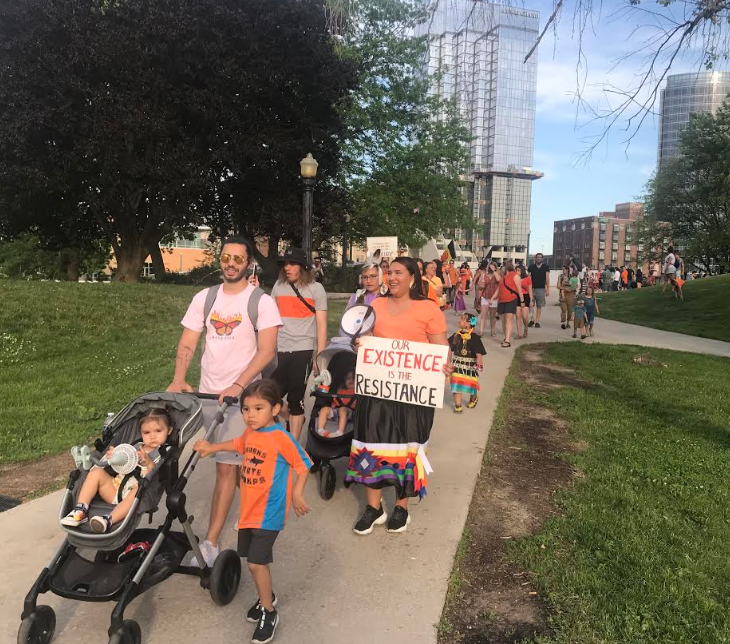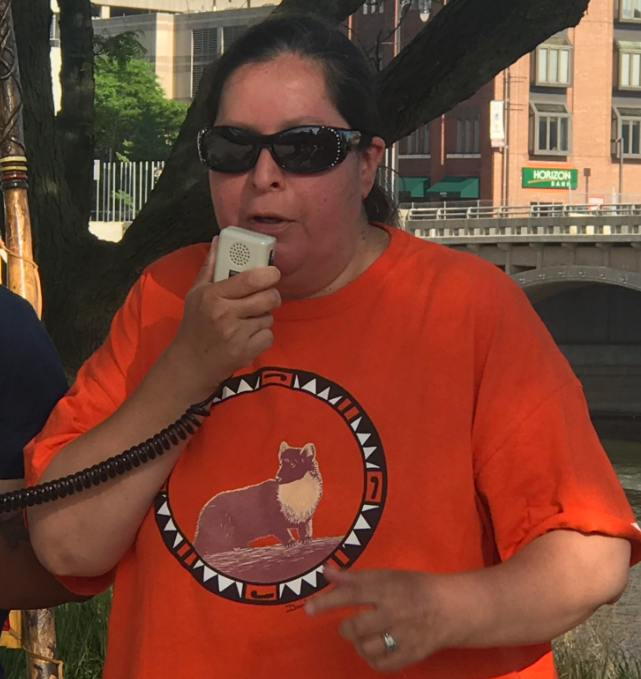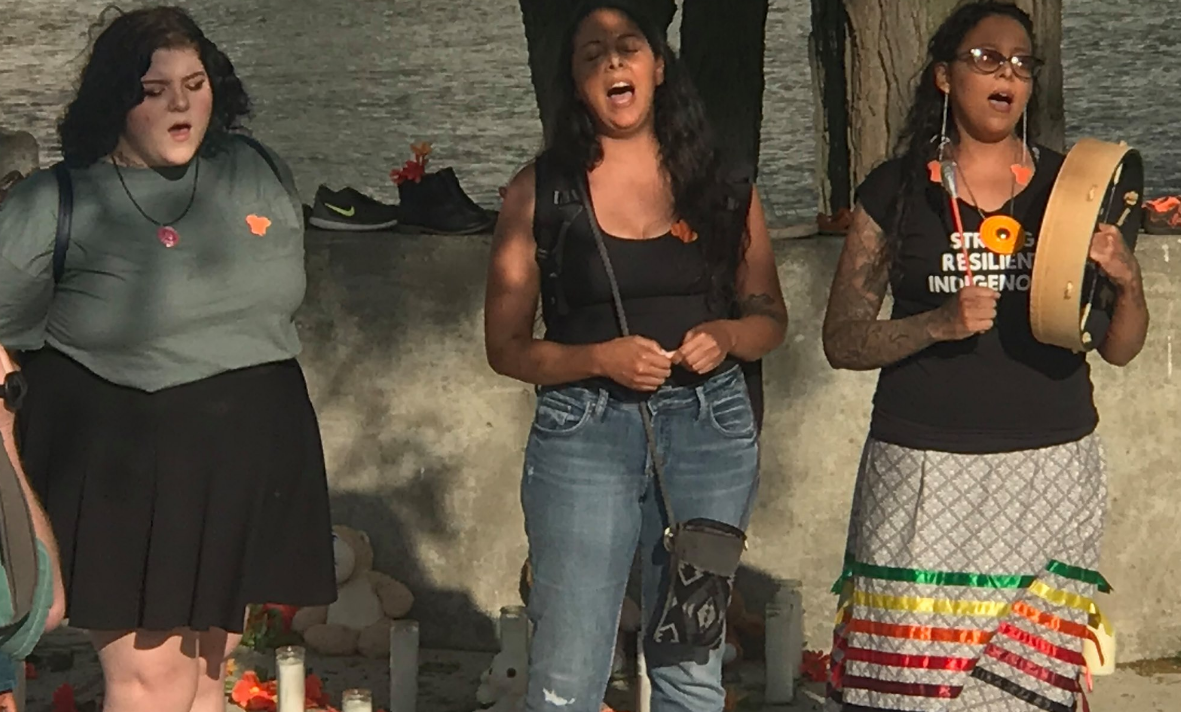
- Details
- By Levi Rickert
GRAND RAPIDS, Mich. — Under brilliant blue skies of a late spring evening on Thursday at Ah-Nab-Awan Park n downtown Grand Rapids, Native American elder George Martin (Lac Courte Oreilles Band of Lake Superior Chippewa) offered a prayer and then asked for a two-minutes and 15-seconds moment of silence to honor the 215 children whose remains were discovered in Kamloops, British Colombia on the grounds of a closed residential school.
The crowd of about 200 gathered in remembrance of those children who died while under the control of the Catholic church that operated the Kamloops Indian Residential School. The residential school was operated by the Catholic Church until 1969.
Want more Native News? Get the free daily newsletter today.
The fact that 2,035 miles separate Grand Rapids from Kamloops did not matter to the over two hundred members of the local Native American community, because many of those in the crowd either attended an Indian boarding school or had relatives who did. What was important was another Indigenous community—a kindred community—was now suffering from the pain of past injustices.
The 215 children’s remains disclosed last week in Canada made national news.
Last evening Shannon Martin (Gun Lake Tribe), the former director of Ziibiwing Center of Anishinabe Culture and Lifeways in Mt. Pleasant, Mich., said there are 227 remains on the grounds of the closed Mt. Pleasant Industrial Boarding School that is now owned by the Saginaw Chippewa Tribe of Michigan.
“Through research, there are 227 undocumented deaths attributed to that school. The U.S. government, through administrative records, owned up to five,” Martin said.

She said our tribal leaders and communities should convince policy makers—law makers—to fund investigations into where more human remains of students who attended boarding schools may be found and get an accurate count of them.
“We cannot forget. We have to acknowledge and talk about it within our families, as painful as it is. We have to ask our relatives to talk about this because that is where our healing, our strength and our velocity will begin,” Martin said.
During the program, members of the crowd were allowed to say a few words, traditional Anishinabe drumming, singing and dancing took place, including jingle dress dancing.
After the rally at Ah-Nab-Awan Park, the crowd marched three blocks to St. Mary’s Catholic Church. They left shoes and stuffed animals on the steps of the church. While a local drum group sang four songs as a means of expressing their concern for the Kamloops First Nation community and healing for their own remembrance of pain brought to them and their families here in the United States.
Susan McSauby, a tribal citizen of the Grand Traverse Band of Ottawa and Chippewa, attended the event with her family.
“It is important for us come together so people become aware of the boarding school era. Last weekend I was talking to my sister-in-law who didn’t know anything about boarding schools. People have to be taught,” McSauby said.
For Keith Dayson, a tribal citizen of the Little Traverse Bay Bands of Odawa Indians, he attended in memory of his father who attended a boarding school.
“I came to support him and my family. It is part of our past,” Dayson remarked.
The event was organized by local community memeber Mariah Eldridge (Navajo and Pueblo).

More Stories Like This
Native News Weekly (August 25, 2024): D.C. BriefsUS Presidents in Their Own Words Concerning American Indians
Navajo Mother Welcomes Federal Charges in 2020 Killing of Her Son
Native News Online Launches Year-End Campaign to Support ‘Warrior Journalism’
Native News Online’s Year-End Live Stream - Recap of 2025: A Night That Brings Indian Country Together
Help us defend tribal sovereignty.
At Native News Online, our mission is rooted in telling the stories that strengthen sovereignty and uplift Indigenous voices — not just at year’s end, but every single day.
Because of your generosity last year, we were able to keep our reporters on the ground in tribal communities, at national gatherings and in the halls of Congress — covering the issues that matter most to Indian Country: sovereignty, culture, education, health and economic opportunity.
That support sustained us through a tough year in 2025. Now, as we look to the year ahead, we need your help right now to ensure warrior journalism remains strong — reporting that defends tribal sovereignty, amplifies Native truth, and holds power accountable.
 The stakes couldn't be higher. Your support keeps Native voices heard, Native stories told and Native sovereignty defended.
The stakes couldn't be higher. Your support keeps Native voices heard, Native stories told and Native sovereignty defended.
Stand with Warrior Journalism today.
Levi Rickert (Potawatomi), Editor & Publisher

